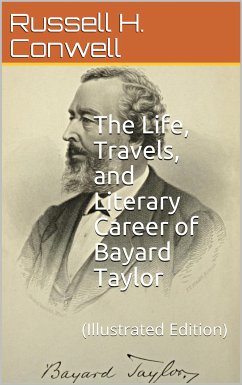Bayard Taylor, in full James Bayard Taylor, (born Jan. 11, 1825, Kennett Square, Pa., U.S.—died Dec. 19, 1878, Berlin, Ger.), American author known primarily for his lively travel narratives and for his translation of J.W. von Goethe’s Faust.
A restless student, Taylor was apprenticed to a printer at age 17. In 1844 his first volume of verse, Ximena, was published. He then arranged with The Saturday Evening Post and the United States Gazette to finance a trip abroad in return for publication rights to his travel letters, which were compiled in the extremely popular Views Afoot (1846). In 1847 he began a career in journalism in New York. Eldorado (1850) recounted his trials as a newspaper correspondent in the 1849 California gold rush. He continued his trips to remote parts of the world—to the Orient, to Africa, to Russia—and became renowned as something of a modern Marco Polo. In 1862 he became secretary of the U.S. legation at St. Petersburg, Russia. Of his works in this later period, the translation of Faust (1870–71) remains his best known. His Poems of the Orient appeared in 1855.
Hinweis: Dieser Artikel kann nur an eine deutsche Lieferadresse ausgeliefert werden.
A restless student, Taylor was apprenticed to a printer at age 17. In 1844 his first volume of verse, Ximena, was published. He then arranged with The Saturday Evening Post and the United States Gazette to finance a trip abroad in return for publication rights to his travel letters, which were compiled in the extremely popular Views Afoot (1846). In 1847 he began a career in journalism in New York. Eldorado (1850) recounted his trials as a newspaper correspondent in the 1849 California gold rush. He continued his trips to remote parts of the world—to the Orient, to Africa, to Russia—and became renowned as something of a modern Marco Polo. In 1862 he became secretary of the U.S. legation at St. Petersburg, Russia. Of his works in this later period, the translation of Faust (1870–71) remains his best known. His Poems of the Orient appeared in 1855.
Hinweis: Dieser Artikel kann nur an eine deutsche Lieferadresse ausgeliefert werden.









